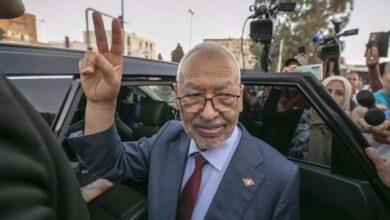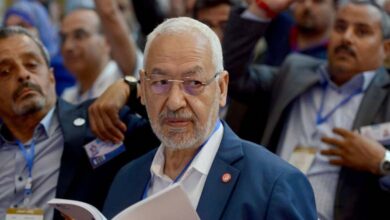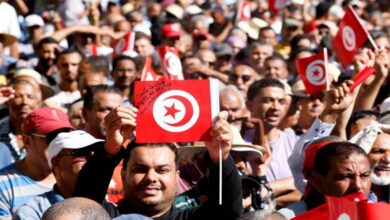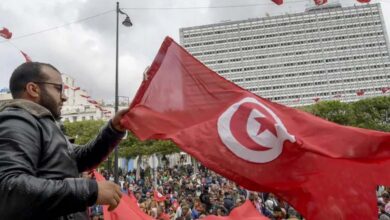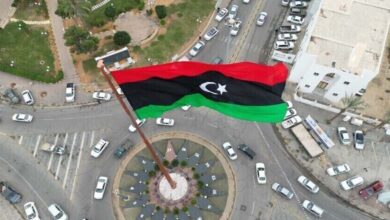The Mufti of Destruction faces his allies: a funding crisis exposes divisions within Libya’s Muslim Brotherhood
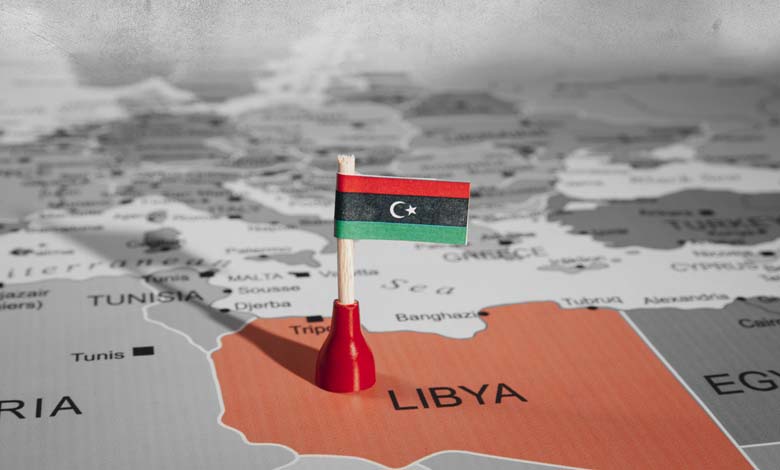
A new internal dispute has erupted within Libya’s Muslim Brotherhood, reflecting a fierce struggle over funding tied to the Libyan Dar al-Ifta, headed by Sadiq al-Ghariani, the mufti of extremist and Brotherhood-affiliated groups in the country.
The disagreements center on the Faculty of Sharia Sciences and the Abu Sitta Hospital development project, both overseen by al-Ghariani and expected to receive government subsidies.
-
The Muslim Brotherhood in Libya: Al-Ghariani Expands Influence over Education under the Guise of Religious Legitimacy
-
International Interface or Political Islam Tool? UN Mission in Libya Accused of Backing the Muslim Brotherhood
In his television program “Islam and Life,” aired on his own channel Al-Tanasuh, al-Ghariani stated that the faculty is almost entirely paralyzed due to the non-disbursement of its budget, affecting food services, sanitation, and the stipends of teachers and students. He added that no funds had been allocated to equip Abu Sitta Hospital or to provide medicines and medical supplies.
Al-Ghariani blamed Mohammed al-Shahoubi, the Minister of Transport in the outgoing Government of National Unity—which has long supported extremist movements—for obstructing the implementation of the funding decision for more than two months. He emphasized that repeated attempts to contact the minister and the government had gone unanswered.
-
Dbeibah Turns to the Muslim Brotherhood, Haftar Warns of Decisive Moment… Libya on a Knife’s Edge
-
The Brotherhood’s Mufti and Dbeibeh… An Alliance Driving Libya toward Catastrophic Scenarios
An illegal entity
Libyan legal expert Mohamed Saleh Jibril al-Lafi stated that “Libya already has accredited Sharia faculties and departments, and there is no need for al-Ghariani’s institution, which is merely intended to produce extremists and spread takfiri ideology.”
He explained that the legal status of this college and the scholarships it grants is invalid, as Law No. 15 of 2012 governing Dar al-Ifta limits its role to issuing religious opinions on public matters and does not authorize the establishment of educational institutions or the awarding of academic degrees. Moreover, Law No. 8 of 2014 officially dissolved the Libyan Dar al-Ifta.
Al-Lafi added that the delay in funding—despite al-Ghariani’s past relationship with the outgoing government—stems from the fact that the Prime Minister has resolved most of his disputes with militias and rivals, making al-Ghariani’s support less valuable, hence his reluctance to provide further financial backing.
-
Libya’s Muslim Brotherhood Incites Armed Resistance Against Peaceful Solutions
-
How did the Muslim Brotherhood exploit the February events to seize power in Libya? A report answers
Destructive fatwas
Since 2014, al-Ghariani has been notorious for his calls for division and chaos, particularly after his dismissal as Libya’s Grand Mufti by the House of Representatives in November of that year. He has continued to exploit his former position to issue fatwas legitimizing violence and unrest, especially against the Libyan National Army.
Among Libyans, al-Ghariani is widely known as the “Mufti of Destruction,” a reference to his long record of fatwas fueling internal conflicts. One of his most infamous actions was directly inciting armed militias to take to the streets and block elections—moves seen as deliberate attempts to derail any peaceful democratic process.
Despite his removal, al-Ghariani still heads the self-proclaimed “Dar al-Ifta” in Tripoli, supported by extremist militias that provide him with protection in exchange for religious cover legitimizing their armed actions and violations against the state.


